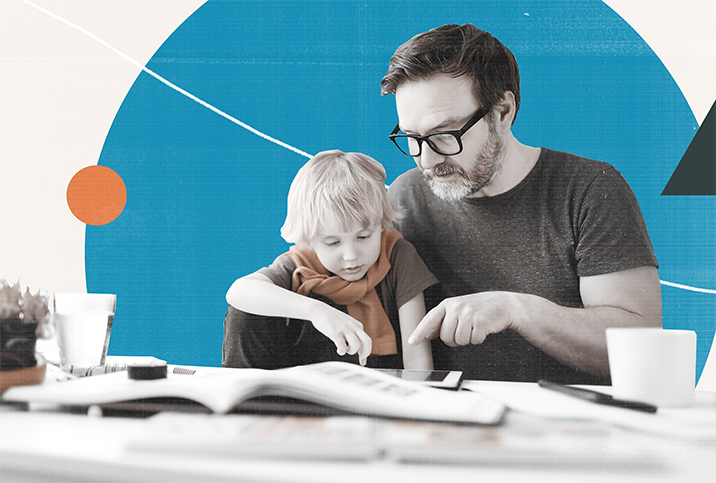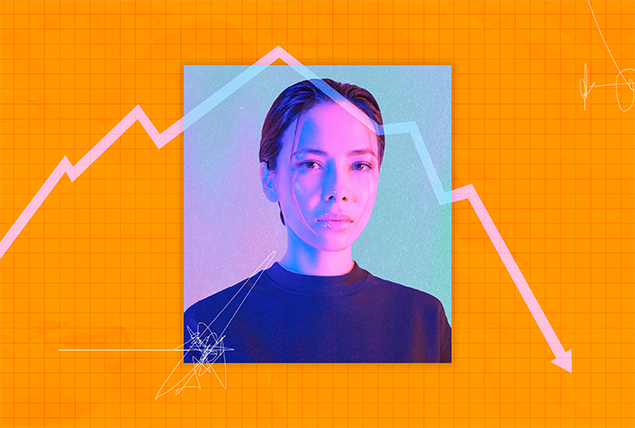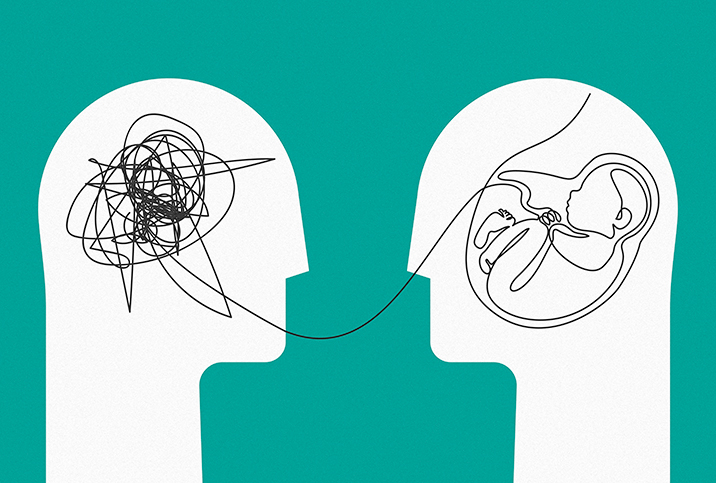From One Old Dad to Another

My dad was born during the Spanish Flu. He came of age during the Great Depression, served in World War II and Korea, and was deep into a third career by the time he had me, at age 63.
I was the second kid from his third marriage, and there were no more after me. I'm not exactly a Civil War widow, but there's probably a short supply of people my age whose parents were born during the Great War.
And now I'm an old dad, too. I'm no sexagenarian, but I'll be in my fifth decade when my third kid—knock on wood—arrives in March 2022. I'm not the oldest dad out there: George Clooney, for one, and a lot of career-minded dads in New York City, for another, have me beat. But being the father of young kids in your late 30s and early 40s (our other two are 6 and 3) is a much different experience than that of a lot of my friends who had their kids in their mid- to late-20s.
William Faulkner wrote in "A Light in August" about the children of older parents, children he portrayed as insipid, exhausted and prematurely old themselves. But what he saw as apathy or listlessness, I think of as the digestion of a certain amount of life's wisdom (at its best, at least). After all, I was raised by someone who had already strived, struggled, failed and achieved what he could, someone who had largely accepted that he had scratched out what impact he would have on this Earth. And he knew such impact may ultimately be fleeting, even from a life dedicated toward helping others. He knew not to put too much stock or significance in any single thing, good or bad, as the natural balance tends toward equilibrium; good days will follow bad, and vice versa, so enjoy the good and don't dwell on the bad. He also had absorbed specific lessons borne from experience, especially as that of a Jew in America—that bigotry and jingoism change their faces but do not die, that historical circumstances change but history is as cyclical as the Earth's rotation.
Those were the lessons of a long life, lived.
As the child of an older parent, I received (and hopefully digested) those life lessons, and now, as an older parent, I'm doubly able to pass them on, because I have also, to a lesser extent, had a similar experience. Much of what I know, I learned from him, and the rest I've experienced through my life.
Of course, as a younger older dad, I can do a lot of the things with my children that my dad couldn't do with me, like wrestle, throw a baseball or just generally be playfully, physically active with them. That gets more difficult with age, of course—carrying sleeping toddlers upstairs to bed is prime time for creaky joints to do their thing—but one of the sheer joys of life is to play, really just play, with your kids.
The biggest difference between my experience being raised by an older father and now being a (relatively) older dad myself is that (again, knock on wood) I'll be around for their early adulthood. I was 21 when my dad died.
Children need the basic assurances and guardrails that a parent can give them. Those needs change as they become bigger kids and then teenagers, but there is something limitlessly, invisibly reassuring about knowing you have a parent to trust, an infinite well of support and guidance, whether or not you tap into it. I hope I can offer that to my kids as they become young adults. I want to be a source of guidance and companionship as they mature into adulthood, someone they can turn to (a second source, of course, as they do have a mother who is rock-solid and whip-smart). Short of that, I can at least be watching out for them as they tumble out of the chute of childhood and stagger to adulthood on sea legs. It's helpful to have a parent around when you become an adult. I, too, had a mother, but I was much closer with my father then. If he'd been around, I might have floundered less and been less self-destructive—or maybe not. Those are inevitable experiences in your 20s, but come hell or high water, I'll be there to pick up the phone, buy dinner, give a hug—and if I can offer any wisdom along the way, all the better.
As is always the case, it's how you interpret and translate the lessons of life that matters. Life is short, fleeting, and we each make a minimal impact. Okay, so what do you do with that time and effort? And, more to the point, how do you communicate that message to your kids? That, of course, is up to you. But knowing how singular and finite a life really is, is the first step, and a lesson learned more readily through the wisdom of age and experience.


















